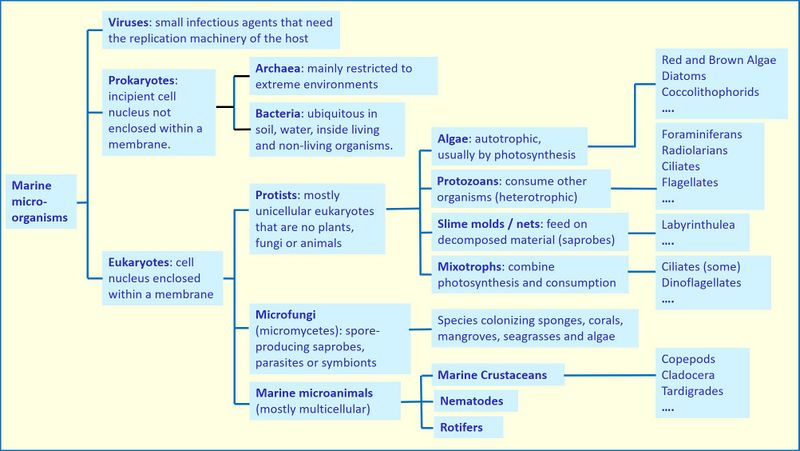Marine microorganisms
From Coastal Wiki
Definition of Marine microorganisms:
Marine microorganisms (or microbes) comprise all microscopic life in the sea.
This is the common definition for Marine microorganisms, other definitions can be discussed in the article
|
Notes
The diversity of marine microbial organisms is very high. A non-exhaustive classification is shown in Fig. 1. Microbes, mainly bacteria and protists, account for around 70% of the total marine biomass[1]. Microorganisms are crucial to nutrient recycling in ecosystems as they act as decomposers. They are also responsible for nearly all photosynthesis that occurs in the ocean, as well as the cycling of carbon, nitrogen, phosphorus and other nutrients and trace elements. Marine microorganisms sequester large amounts of carbon and produce about half of the world's oxygen.
Related articles
External sources
See the Wikipedia article Marine microorganisms for more details.
References
- ↑ Bar-On, Y.M., Phillips, R. and Milo, R. 2018. The biomass distribution on Earth. PNAS 115(25): 6506-6511
Please note that others may also have edited the contents of this article.
|
